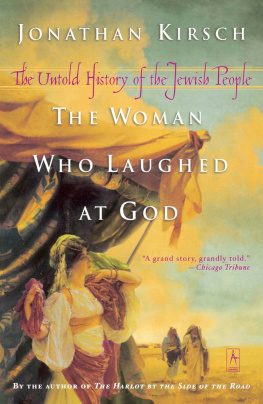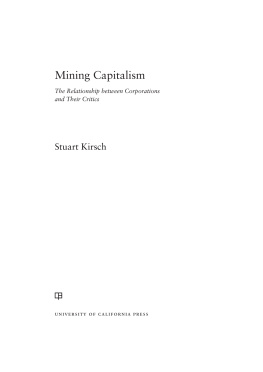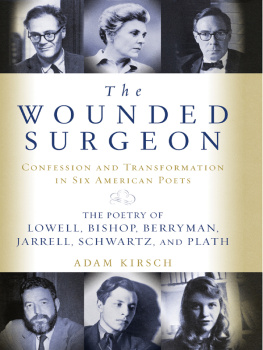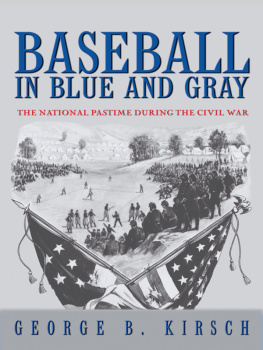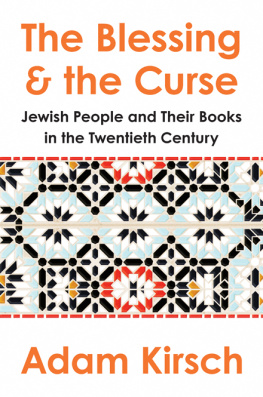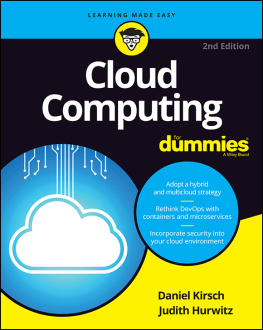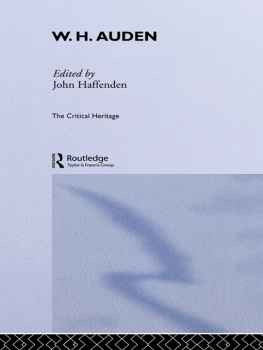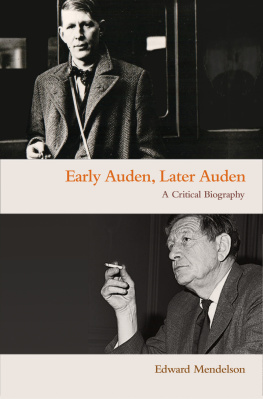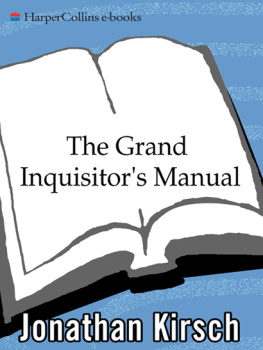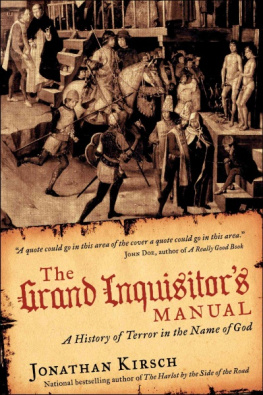Kirsch - Auden and Christianity
Here you can read online Kirsch - Auden and Christianity full text of the book (entire story) in english for free. Download pdf and epub, get meaning, cover and reviews about this ebook. year: 2005, publisher: YaleUP, genre: Religion. Description of the work, (preface) as well as reviews are available. Best literature library LitArk.com created for fans of good reading and offers a wide selection of genres:
Romance novel
Science fiction
Adventure
Detective
Science
History
Home and family
Prose
Art
Politics
Computer
Non-fiction
Religion
Business
Children
Humor
Choose a favorite category and find really read worthwhile books. Enjoy immersion in the world of imagination, feel the emotions of the characters or learn something new for yourself, make an fascinating discovery.

Auden and Christianity: summary, description and annotation
We offer to read an annotation, description, summary or preface (depends on what the author of the book "Auden and Christianity" wrote himself). If you haven't found the necessary information about the book — write in the comments, we will try to find it.
Auden and Christianity — read online for free the complete book (whole text) full work
Below is the text of the book, divided by pages. System saving the place of the last page read, allows you to conveniently read the book "Auden and Christianity" online for free, without having to search again every time where you left off. Put a bookmark, and you can go to the page where you finished reading at any time.
Font size:
Interval:
Bookmark:
AUDEN AND CHRISTIANITY
ARTHUR KIRSCH

Copyright 2005 by Yale University.
All rights reserved.
This book may not be reproduced, in whole or in part, including illustrations, in any form (beyond that copying permitted by Sections 107 and 108 of the U.S. Copyright Law and except by reviewers for the public press), without written permission from the publishers.
Designed by James J. Johnson and set in New Caledonia Roman type by Integrated Publishing Solutions.
Printed in the United States of America by Sheridan Books.
Library of Congress Cataloging-in-Publication Data
Kirsch, Arthur C.
Auden and Christianity / Arthur Kirsch.
p. cm.
Includes bibliographical references (p. ) and index.
ISBN 0-300-10814-1 (alk. paper)
1. Auden, W. H. (Wystan Hugh), 19071973. 2. Christian BiographyEngland. 3. Poets, English20th centuryBiography. I. Title.
BR1725.A86K57 2005
811.52dc22
2005003957
A catalogue record for this book is available from the British Library.
The paper in this book meets the guidelines for permanence and durability of the Committee on Production Guidelines for Book Longevity of the Council on Library Resources.
10 9 8 7 6 5 4 3 2 1
To Beverly,
and Matthew and Alice
and their families
I am greatly indebted to Edward Mendelson, whose works Early Auden and Later Auden, as well as his editions and bibliographies of Auden, have made Auden accessible and understandable to a generation of readers. This book would not have been possible without the foundation provided by his scholarship and by his generous personal help when I was editing Audens Lectures on Shakespeare and The Sea and the Mirror. I also owe much to John Fullers invaluable readers guide to Audens poetry, W. H. Auden: A Commentary. In addition, I have been helped by books and articles on Auden by many writers, including Geoffrey Grigson, Clive James, and Oliver Sacks. I owe a special debt to Ursula Niebuhrs rich and penetrating reminiscences of Auden, and to numerous conversations with a Congregationalist minister, Janet Legro, who read the entire manuscript of this book and contributed vital ideas drawn from her own experience and knowledge of Christianity.
I had generous assistance from Stephen Crook and Philip Milito at the Berg Collection of the New York Public Library. I am very grateful as well for the dedicated help of my editor at Yale University Press, John Kulka, as well as that of his editorial assistant, Mary Traester, and the manuscript editor, Lawrence Kenney.
I owe most, as usual, to the editorial experience, unfailing good judgment, and loving support of my wife, Beverly.
In a review written in 1941, W. H. Auden chided the of cultured people, to whom... theological terms were far more shocking than any of the four-letter words, whose childish memories associate religion with vague and pious verbiage. Such prudery has only intensified in recent decades, especially among academics and intellectuals who assume that one cannot be a religious and a thinking person at the same time. Auden stands as an eloquent example of the joining of the two, a modern instance of a person in whom thought and faith not only coexisted, but nourished each other. His faith expanded the horizons of his mind as well as his heart, and his formidable intelligence, in turn, probed the nature and limits of his Christian belief, animating his continuous quest not only to believe still but also to believe again.
... and the artist is usually unwise to insist too directly in his art upon his beliefs; but without an adequate and conscious metaphysics in the background, arts imitation of life inevitably becomes, either a photostatic copy of the accidental details of life without pattern or significance, or a personal allegory of the artists individual dementia, of interest primarily to the psychologist and the historian. For Auden this integrating metaphysics was the Anglo-Catholic faith.
Audens decision to write poetry was from the first associated with his faith. When he was fifteen years old, his friend Robert Medley attacked the Church while the two were walking together on a field near their school. Auden startled Medley by declaring that he was a believer. do so. Years later, Auden recollected the episode in Letter to Lord Byron:
, he turned to me
And said, Tell me, do you write poetry?
I never had, and said so, but I knew
That very moment what I wished to do.
Auden discovered that he had .
In 1940 Auden formally returned to the liturgy and faith of his childhood, though his faith was never entirely absent in the intervening years, and thereafter Christianity is the governing subject of many of his most important long poems, including For the Time Being: A Christmas Oratorio, The Sea and the Mirror: A Commentary on Shakespeares The Tempest, and Horae Canonicae, a series of poems corresponding to the church offices. Christianity is also part of the fabric of The Double Man, and it underlies such shorter poems, both before and after 1940, as Muse des Beaux Arts and In Praise of Limestone, among a great many others. In 1939, in his unfinished prose work The Prolific and the Devourer, he began exploring the grounds of his faith in detail, and in 1942 he published anonymously a series of on the intermingling of work, play, and prayer in human life.
Audens Christian faith can thus hardly be exaggerated, but as a subject of study, it nonetheless poses difficulties. Auden objected to analytical explanations of his own or anyone elses religious faith (he did so acerbically persons, that is, to whom God is already a subject of prayer, even if only subconsciously. Except in the context of prayer they are meaningless, for to talk about God, as one talks about the weather or bimetallism, is to take His name in vain.
In addition, though Auden always stressed the human need for the unconditional as a foundation of religious beliefhe called dogma , to differ for the sake of being different is pride.
Re my theological position, it is I think the same as your husbands, i.e. Augustinian not Thomist, (I would allow a little more place, perhaps, for the via negativa). Liturgically, I am Anglo Catholic, though not too spiky, I hope. As to forms of church organisation, I dont know what to think. Im inclined to agree with de Rougemont that it will be back to the Catacombs for all of us. As to organisations, none of the churches look too hot, do they? But what organisation does?
As Audens statement suggests, Ursula Niebuhrs facetious reaction to her solemn interlocutor was appropriate. Though Auden was hardly averse to categorieshe in fact loved themhis faith itself cannot be precisely categorized, and he would have distrusted anyone who presumed to do so. There are important recurring themes in his religious beliefs, but those beliefs are also not infrequently heterodox, marked by the controversies Auden said were indigenous to the Anglican Church, enacted in his work more than propounded, and so bound up with his temperament and his perception of his everyday life in the world, that to extract them into an abstract and systematic theology would be to falsify them. said, The Christian theologian is in the embarrassing position of having to use human language which by its nature is anthropomorphic to deny anthropomorphic conceptions of God. Theological statements, he continued, the Athanasian Creed for example, are neither poetic utterances nor logical propositions. They areunfortunately theologians have not always recognized thismore like shaggy-dog stories they have a point but if you try too hard to put your finger on it, you will miss it. St. Anselm was rightcredo ut intelligam [I believe in order that I may understand]but so was Tertulliancredo quia absurdum est [I believe because it is absurd]. Auden added that Tertullians words were perhaps less shocking now than they were to the liberal humanists of the eighteenth and nineteenth centuries: A few years ago, the physicist Wolfgang Pauli read a paper at a meeting of distinguished colleagues. During the discussion which followed, Niels Bohr got to his feet and said: We are all agreed that your theory is crazy. What divides us is whether it is crazy enough to stand a chance of being right. My own opinion is that it is not crazy enough.
Next pageFont size:
Interval:
Bookmark:
Similar books «Auden and Christianity»
Look at similar books to Auden and Christianity. We have selected literature similar in name and meaning in the hope of providing readers with more options to find new, interesting, not yet read works.
Discussion, reviews of the book Auden and Christianity and just readers' own opinions. Leave your comments, write what you think about the work, its meaning or the main characters. Specify what exactly you liked and what you didn't like, and why you think so.

